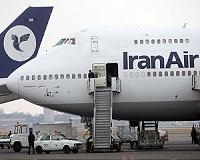 |
Durham NC (SPX) Nov 30, 2010 Humans are known to play it safe in a situation when they aren't sure of the odds, or don't have confidence in their judgments. We don't like to choose the unknown. And new evidence from a Duke University study is showing that chimpanzees and bonobos, our closest living primate relatives, treat the problem the same way we do. In studies conducted at the Tchimpounga Chimpanzee Sanctuary in Republic of Congo and Lola ya Bonobo Sanctuary in Democratic Republic of Congo, researchers found the apes prefer to play it safe when the odds are uncertain. Graduate student Alexandra Rosati and Brian Hare, an assistant professor of evolutionary anthropology, asked 16 chimps and 14 bonobos to make choices between two bowls of treats. Though no dice or chips are involved, this kind of experiment is considered a "gambling game," Rosati said. The apes could choose between a safe bet that would always provide a food they liked somewhat less, peanuts, or a variable bet in which the payout could be either a highly-preferred big piece of banana or less-desirable cucumber slice. The apes "gambled" by making a choice of one bowl or the other. They knew the odds before they chose because the experimenter showed them bowls with two potential outcomes, but then gave them only one. Depending on the contents of the bowls, there could be a 100 percent chance of receiving a banana, a 50 percent chance, or a 0 percent chance. The apes readily distinguished between the different probabilities of winning: they gambled a lot when there was a 100 percent chance, less when there was a 50 percent chance, and only rarely when there was no chance. In some trials, however, the experimenter didn't remove a lid from the bowl, so the apes couldn't assess the likelihood of winning a banana. The odds from the covered bowl were identical to those from the risky option: a 50 percent chance of getting the much sought-after banana. But apes of both species were less likely to choose this ambiguous option. They were willing to take the chance on the covered bowl when they knew the only alternative was food they didn't like (the cucumber), or no food at all. But, like humans, they showed "ambiguity aversion" - preferring to gamble more when they knew the odds than when they didn't. Given some of the other differences between chimps and bonobos, Hare and Rosati had expected to find the bonobos to be more averse to ambiguity, but that didn't turn out to be the case. Researchers looking for the foundations of economic decision-making have been doing studies like this on a variety of species, but these two apes are the two species most closely related to humans, Rosati said. "These results suggest that understanding how animals forage may be more complex than previously thought," Rosati said. Decision-making matters to animals in the wild who have to make choices about which resources to pursue on the fly, without knowing if their choices will pay off. "It may be that different decision mechanisms come into play when animals are faced with choices when they have incomplete knowledge," Rosati said. "These results also suggest that some of our human economic biases may be evolutionarily ancient, predating modern markets: chimpanzees and bonobos act just like us when faced with a primate slot machine," Rosati said. "Chimpanzees and bonobos distinguish between risk and ambiguity," Alexandra Rosati and Brian Hare. Biology Letters, November 2010. doi:10.1098/rsbl.2010.0927
Share This Article With Planet Earth
Related Links Duke University All About Human Beings and How We Got To Be Here
 Jet-Lagged And Forgetful? It's No Coincidence
Jet-Lagged And Forgetful? It's No CoincidenceBerkeley CA (SPX) Nov 26, 2010 Chronic jet lag alters the brain in ways that cause memory and learning problems long after one's return to a regular 24-hour schedule, according to research by University of California, Berkeley, psychologists. Twice a week for four weeks, the researchers subjected female Syrian hamsters to six-hour time shifts - the equivalent of a New York-to-Paris airplane flight. During the last two w ... read more |
|
| The content herein, unless otherwise known to be public domain, are Copyright 1995-2010 - SpaceDaily. AFP and UPI Wire Stories are copyright Agence France-Presse and United Press International. ESA Portal Reports are copyright European Space Agency. All NASA sourced material is public domain. Additional copyrights may apply in whole or part to other bona fide parties. Advertising does not imply endorsement,agreement or approval of any opinions, statements or information provided by SpaceDaily on any Web page published or hosted by SpaceDaily. Privacy Statement |